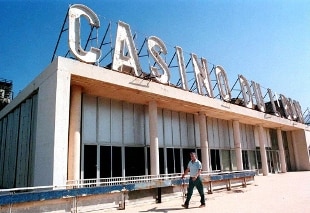- Beirut, explosions at the port: over 135 dead and 5 thousand injured. "Toxic air, leave the city"
Share
05 August 2020 The appellation of 'Middle Eastern Switzerland' that Lebanon boasted of in the 1970s, as an oasis of prosperity in a tormented region, is definitively buried under the blanket of smoke that dominates Beirut.The disaster at the port, in addition to bringing death and destruction, perhaps appears as the knockout blow to a country already weakened by sectarian tensions and the economic recession, further worsened due to the coronavirus pandemic.
The presence of different confessions, from Shiite and Sunni Muslims, to Catholic, Orthodox and Maronite Christians, has always been an element of originality in Lebanon in the region. Especially since up to the 70s, albeit with ups and downs, coexistence was peaceful, indeed it was an example of multiculturalism.Furthermore, between the 1950s and 1960s, the Country of the Cedars experienced the economic boom, with Beirut center of reference for trade with Europe. In the capital there was the 'dolce vita'. Chic as Paris and defined as the Arab Monte Carlo, it had become a destination for stars, princes and the international jet set who arrived aboard luxury cars and yachts, to play at the casino by staying in luxury hotels overlooking the promenade.
The dream was broken when the knots of the religious divisions that were never completely unraveled came to a head, leading to a long civil war, from 1975 to 1990, with the Israeli invasion in the middle. The new republic born from the ashes of that conflict remained suspended in instability, especially for the longa manus of Syria (with Iran's good offices) which through the Shiite allies of Hezbollah aimed to control the country.
Until the height of tension with the assassination of Sunni Prime Minister Rafiq Hariri in 2005, for which Damascus was indicated as the probable instigator.
In recent years the glories of the 70s have become increasingly distant, due to the immobility of the political class in power, described by several local analysts as heedless of the disastrous effects of the worst economic and financial crisis of the last decades.
Added to this was the collapse of the banking system, the devaluation of the currency and the impoverishment of the middle class. This was borne out by Le Monde Gloria, a 60-year-old in jeans and T-shirt who lives on the savings of her engineer husband, who died a few years ago. Turning to a supermarket in Christian Beirut, he pales at the sight of the price of the products and rests them on the shelves: "We Lebanese - he said - were used to a certain comfort in life. But now, with the crisis, you cannot buy anything. 'Middle Eastern Switzerland', the nickname given to our country, will become a new Afghanistan ".

